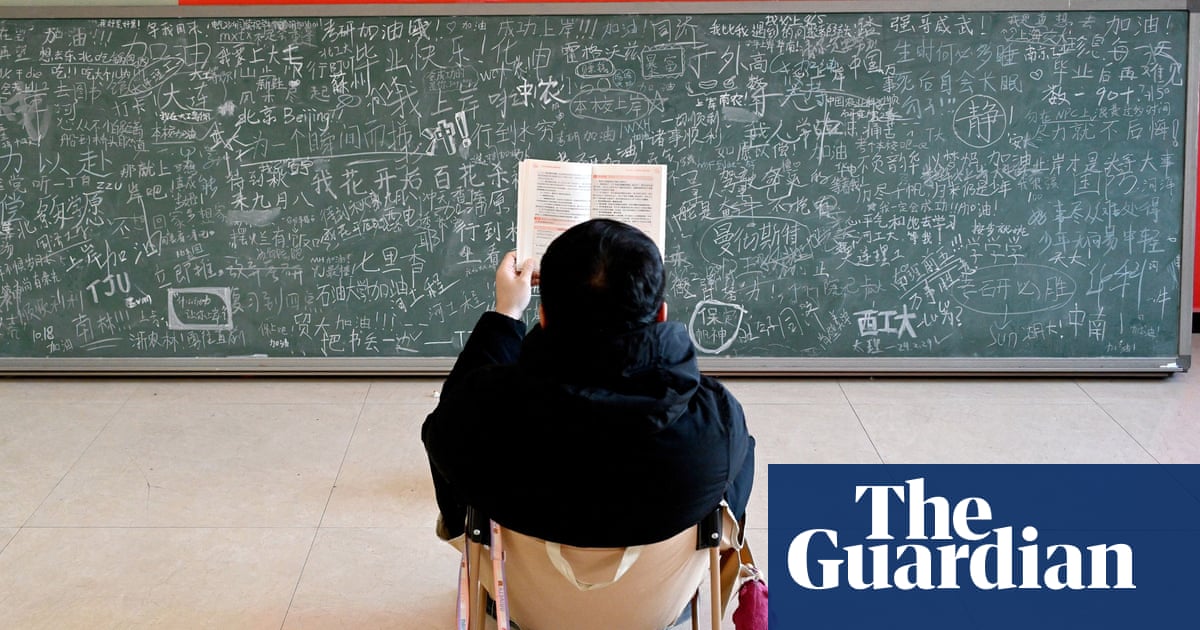On the Chinese internet, the country’s current predicament – slowing economic growth, a falling birthrate, a meagre social safety net, increasing isolation on the world stage – is often expressed through buzzwords. There is tangping, or “lying flat”, a term used to describe the young generation of Chinese who are choosing to chill out rather than hustle in China’s high-pressure economy. There is runxue, or “run philosophy”, which refers to the determination of large numbers of people to emigrate. Recently, “revenge against society” attacks – random incidents of violence that have claimed dozens of lives – have sparked particular concern. And there is also neijuan, or “involution”, a term used to describe the feeling of diminishing returns in China’s social contract.
What is neijuan?
Neijuan is the Chinese term for “involution”, a concept from sociology that refers to a society that can no longer evolve, no matter how hard it tries. Applied to the individual, it means that no matter how hard someone works, progress is impossible.
In China, the term has been used to describe the feeling of diminishing returns in China’s economy. The characters “nei” and “juan” literally mean rolling inwards. After decades of rapid growth, many Chinese millennials and Gen Z people feel that the opportunities that were available to their parents no longer exist, and that working hard no longer offers guaranteed rewards.
Is China worried about neijuan?
Yes. China’s leaders have made it clear that they don’t want the idea of neijuan to catch on more than it already has. In December, top economic policymakers gathered for the annual Central Economic Work Conference, which sets the national economic agenda. According to the readout of the closed-door meeting, the cadres pledged to “rectify ‘involutionary’ competition”. And speaking at Davos in June, China’s premier, Li Qiang, warned against “spiralling ‘involution’” in the world economy.
Who is affected by it?
It’s primarily a concept among millennials and generation Z. The latter group has been hit hard by China’s economic difficulties. Youth unemployment hit a record 21.3% in June 2023, after which the government stopped publishing the data. It has since resumed publishing the statistics with a revised methodology. The latest data shows that the jobless rate for urban 16-24-year-olds is 17.1%.
Neijuan is also increasingly used to describe certain industries. China is investing massively in what it calls “new quality productive forces”, which means focusing more on research and manufacturing in certain hi-tech sectors, such as solar, electric vehicles and batteries. But overproduction, coupled with sanctions from the US and other western markets, has led to a price war in some sectors, hurting their profitability.
What are its origins?
Although the term has been around for decades in academic circles, it went viral on China’s internet in 2020. A student from Tsinghua University, one of China’s most elite schools, was filmed riding his bicycle with his laptop open, propped up on the handlebars. Soon he was crowned as “Tsinghua’s involuted king”, and a meme was born.
The meme of the involuted king came to represent the perhaps pointlessly intense pressure of China’s rat race, and the impossibility of catching a break. During the Covid-19 pandemic, many people felt physically as well as economically trapped.
The term was particularly popular in China’s hyper-competitive tech industry. Despite a workforce that is more educated than any previous generation, many graduates have found it difficult to find jobs in profitable sectors. This became even more of a problem when the Chinese government announced its “double reduction” policy in 2021. Designed to ease the pressure on school students, the policy banned for-profit online and offline tutoring, torpedoing a sector that had previously been a major employer of young graduates. One study suggested that 10 million people lost their jobs as a result of the policy.
